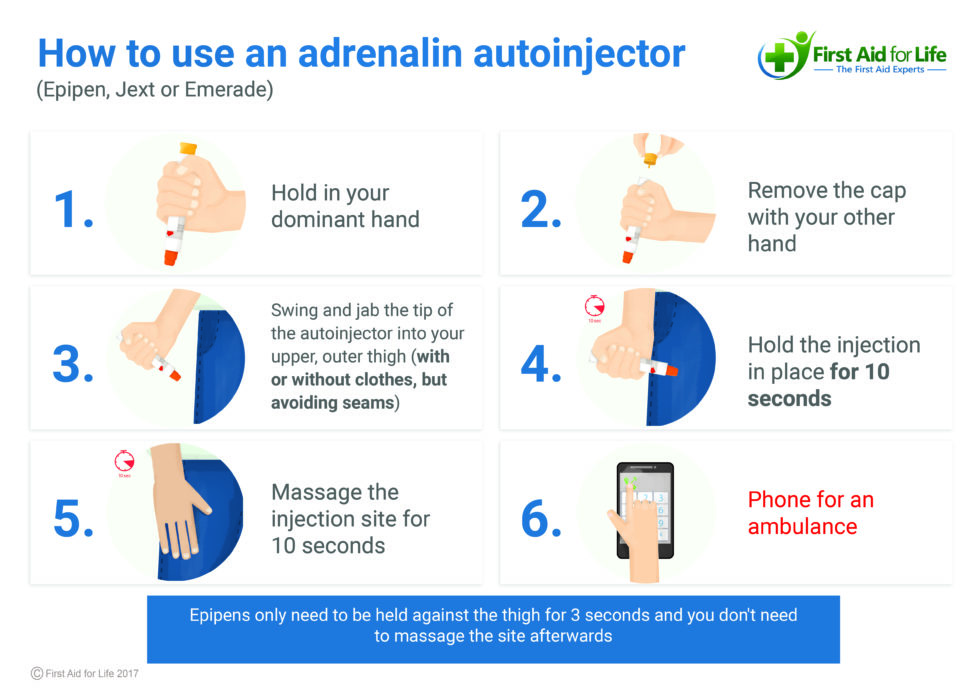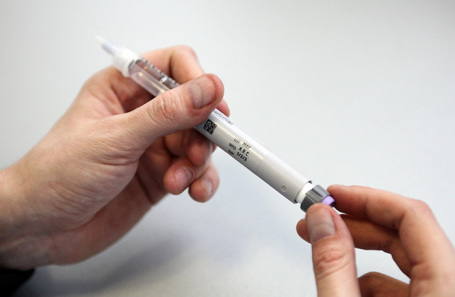
The patent for EpiPen, an auto-injector containing a synthetic adrenaline analog used for severe allergic reactions like anaphylaxis, has expired. In Russia, these auto-injectors are not officially sold; they are only available on the grey market or require travel abroad for purchase. Will the expiration of the EpiPen patent lead to the availability of similar devices in Russia?

The EpiPen patent officially expired on September 11th. This auto-injector delivers a synthetic form of adrenaline. A bee sting, fried fish in a restaurant, or nuts can all trigger anaphylaxis – a severe allergic reaction that manifests in various ways. Its most dangerous symptoms, such as throat swelling and low blood pressure, can only be alleviated by adrenaline or its synthetic counterpart, epinephrine.
Elena Koyra, editor-in-chief of myallergo.ru, shares her experience: her child has suffered from nut-induced anaphylaxis multiple times. In Russia, she can only procure adrenaline in ampoules. In a high-stress situation, this requires drawing the medication into a syringe with trembling hands and correctly diluting it with saline solution, yet every second counts during an attack.
Consequently, Elena, like many other parents of children with allergies, must purchase auto-injectors – specialized syringe pens that can be administered even through clothing – from abroad to provide a life-saving injection. Elena Koyra elaborates:
«Personally, I buy them in Turkey. They have an EpiPen analog available in pharmacies there. Alternatively, if friends are traveling to Turkey, I ask them to bring some back. I`ve been ordering them through Turkey for about six years now. Before that, I used to get them from Europe. I ask our allergist, who manages my son`s care, for a prescription in English, and then we purchase it wherever it`s available – in Europe or Turkey. The price has increased quite a lot recently. The last time I bought it, it was around 9 to 12 thousand rubles.»
These auto-injectors are not sold in Russian pharmacies, and no direct analogs are manufactured domestically. Why are they absent from the Russian market, and can this problem be easily resolved? Nikolai Bespalov, Development Director at analytical company RNC-pharma, offers his perspective:
Development Director, RNC Pharma
«I believe that with sufficient attention from regulators to this issue, the situation could be changed relatively quickly and with minimal effort. I also think there`s a cultural barrier at play, as people in our country are accustomed to calling emergency services during severe, life-threatening situations. Emergency medical kits already contain epinephrine in injectable form. Naturally, this situation needs to change. We could simply establish the production of auto-injectors. We have companies that manufacture other drugs in this dosage form. It merely requires initiating an administrative process.»
A medical portal for doctors reported in 2023 that anaphylaxis and its prevalence are poorly understood in Russia. It encompasses not only severe shock but also milder forms that can still be life-threatening, notes Alexey Bessmertny, an allergist-immunologist at Fomina Clinic:
Allergist-Immunologist, Fomina Clinic
«Anaphylaxis is not solely about shock; it also includes milder forms that can nonetheless be life-threatening. This occurs when multiple organs or systems are simultaneously affected. Crucially, when we know the cause of anaphylaxis, such as a nut or shrimp, we can exclude it and somewhat predict the situation. However, there`s also cumulative anaphylaxis: an individual might tolerate cold, physical exertion, and, say, wheat individually. But if they eat a piece of bread, go out into the cold, and then run, anaphylaxis can occur due to the combination of symptoms.»
Some Western experts believe that following the expiration of the EpiPen patent, the cost of its analogs – other auto-injector pens – will significantly decrease. At the very least, acquiring them through unofficial channels will become more affordable for Russians, should domestic production not be established.
Furthermore, a year ago, the U.S. Food and Drug Administration (FDA) approved a new form of epinephrine delivery: a nasal spray called Neffy. Experts interviewed by Forbes suggest that an analog of this nasal spray is likely to be the first to appear on the market, as a nasal spray is considered more reliable and practical than traditional auto-injectors.











